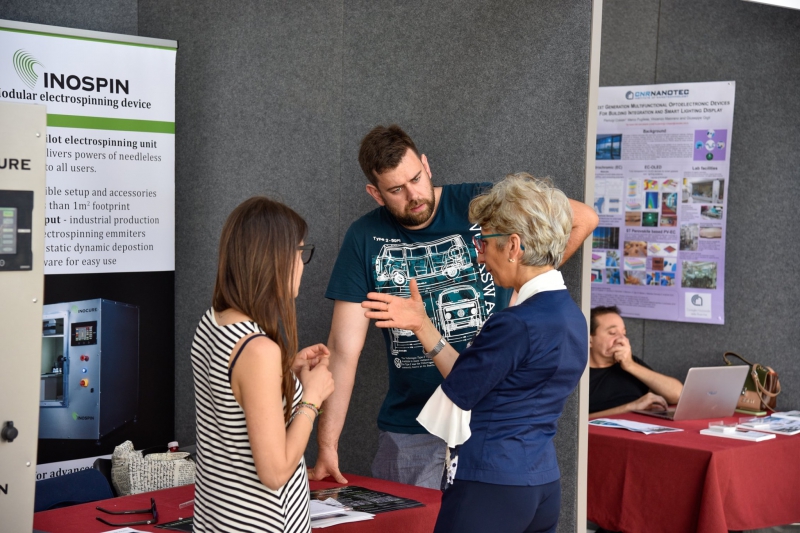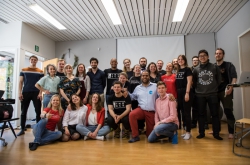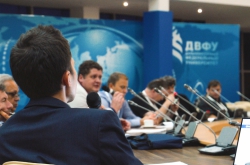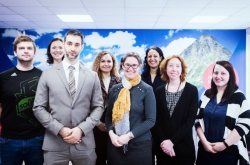ICE, or the Italian Trade Agency, is a governmental organization that seeks to provide international support to Italian businesses through working with Italian embassies around the world. Its main goal is to develop and maintain economic and trade connections between Italy and its foreign partners. It provides consultation to Italian and international companies and promotes export and collaboration in all fields of industry, from agriculture to services. ICE also provides information to international investors and companies looking to expand into the Italian market.
The agency has been operational in Russia since 1966, and currently has offices in Moscow, St. Petersburg, Yekaterinburg, and Novosibirsk. Each year it organizes more than a hundred promotional events and provides its services to some 1,000 Russian and 3,000 Italian companies. ITMO University, too, is among its partners.

“The Italian Embassy’s Trade Promotion Office is interested in working with universities because these are the places where future entrepreneurs and startups are born,” explains Pier Paolo Celeste, head of ICE Moscow. “Fledgling projects need plenty of resources to develop, and there are hi-tech universities capable of providing that support. ITMO University is one of the best such universities. We know that it operates a successful business incubator where new technologies with a variety of applications are developed. Since ICE’s main goal is to help establish economic relations between companies, we’ll be glad to work with scientists, ITMO’s Technopark, and the startups that are built here.”
The collaboration began with ITMO Technopark’s participation in the BIAT Innovation and High Technology Lab in Bari, Italy on April 10-13, 2019. This event, organized by the Italian Ministry of Economic Development and ICE, promotes international collaboration in innovative fields including nano- and biotechnology, new materials, renewable energy, environmental protection, and smart cities. Among its participants were the representatives of over 200 investment funds and organizations from India, Italy, Canada, China, South Korea, the UAE, Poland, Singapore, the USA, France, Sweden, Japan, and other countries. The Russian delegation was the largest and included representatives of Skolkovo, Russian Venture Company, Yandex, and a number of Moscow and Omsk-based technoparks. St. Petersburg was represented only by ITMO University’s Technopark. As the Technopark’s deputy head Olesya Baranyuk tells us, the B2B format widely used at the event was conducive to establishing connections with innovation centers in Europe and the US along with a number of leading global venture companies, technoparks, and incubators.
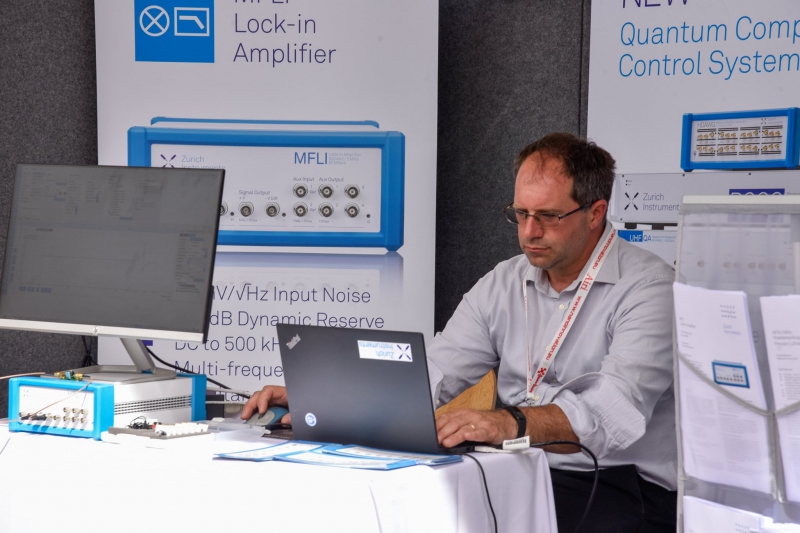
“Our foreign partners are eager to share their experience of creating and implementing innovative and entrepreneurial networks at universities. In their countries, these processes began some 30 years ago, and now we can use their experience and practices to do the same. But not all tried-and-tested Western strategies work in Russia; we have to find our own path. More and more innovative projects have (recently) been appearing around our country. According to statistics, 4% of all innovative ideas come from science; the other 96% come from businesses. We are part of the 4%, and that’s why we must develop and commercialize the projects created at the University. Italians are very good at “packaging” these projects, and in the course of our B2B meetings we’ve already produced a few exciting ideas that, I hope, we’ll be able to speak about very soon,” says Olesya Baranyuk.
In the near future, ITMO University’s Technopark plans to launch an exchange program for tech-focused products in early stages of development with an interest in expanding into the global market. The program will be similar to the Startup Connect project, which has been successfully implemented as part of the Southeast Finland-Russia 2014-2020 Cross-Border Cooperation program.
Discussions at BIAT-2019 resulted in the suggestion of inviting ITMO University scientists to the NanoInnovation 2019 conference. ITMO.NEWS publishes the scientists’ impressions of their time there.
Elizaveta Anastasova, a staff member of SCAMT Lab, Nanopharmaceuticals group
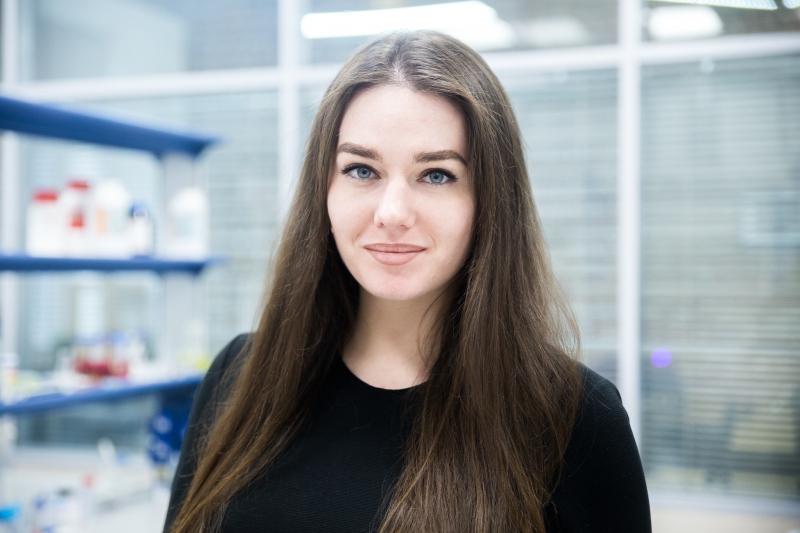
NanoInnovation 2019 took place at one of the world’s oldest universities, La Sapienza. It brought together more than a thousand participants from around the world. The conference’s program was quite intense, featuring plenary sessions, poster exhibitions, roundtables, symposiums, and workshops.
To be honest, I wouldn’t classify this event as a conference in the traditional sense of that word. To me, it is more of a forum-conference because members of the academia were joined by industry representatives: entrepreneurs, managers, and investors. Face-to-face meetings were organized to facilitate communication between the two groups. Any participant could schedule an individual meeting with another and spend a certain amount of time learning about the other person and presenting themselves. In quite a short time I was able to meet three professors from Italian universities who were interested in collaboration in Russia, namely working with ITMO University, and with two investors who expressed interest in SCAMT Lab’s products.
International conferences are an integral part of any scientist’s work. They are a great opportunity to learn about the latest trends, discuss important topics, and present your work to the world. And forum-conferences like NanoInnovation also let you meet prospective partners.
Ivan Iorsh, a researcher at the Faculty of Physics and Engineering and head of International Laboratory of Photoprocesses in Mesoscopic Systems
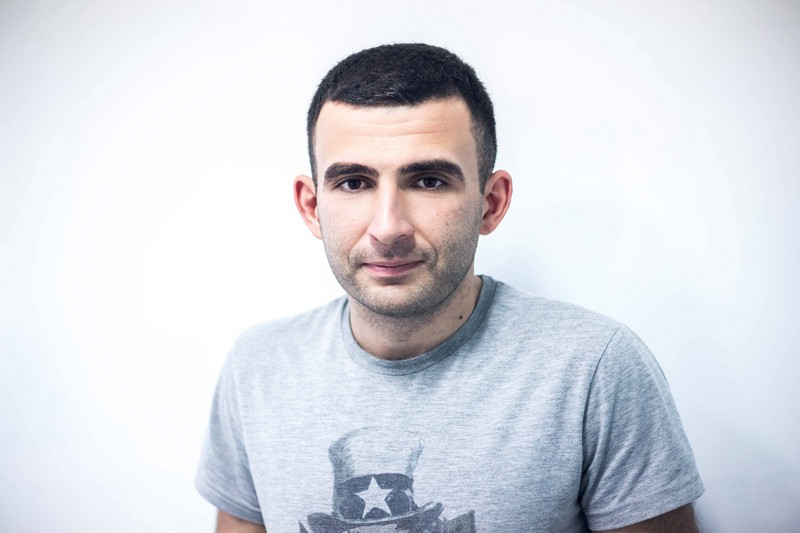
Personally, I also found the conference very unusual. I’m used to such events being primarily focused on science, but NanoInnovation is distinctly industry-oriented. The speakers talked about the development of Europe’s railway infrastructure or the propagation of nanotechnology in business, and the conference venue contained manufacturers’ booths where their staff explained the working principles of their production units. I was very surprised by the large number of medium-size tech companies. Some of them produce complex devices such as XRD systems, which are used to analyze solid-state compounds. I haven’t seen many companies like this in Russia. All in all, it was interesting to see how things are done in the European market.
Mikhail Mukhin, deputy dean of the Faculty of Physics and Engineering
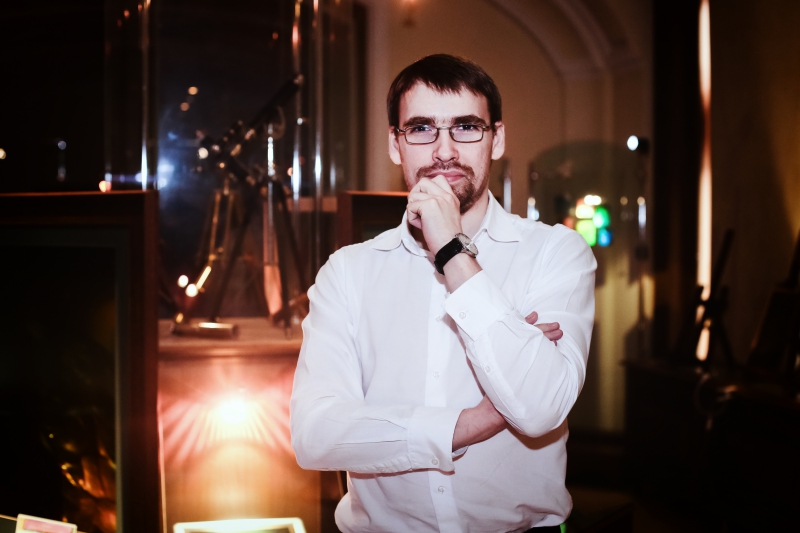
Thanks to ICE, who have organized our trip, we also made a visit to La Sapienza’s nanocenter, which functions as a shared-use center for both the university’s own structural units and third-party industrial clients. We’ve seen a scanning electron microscope, an X-ray diffractometer, a gaseous-phase epitaxy system, and many other devices. Our acquaintance with La Sapienza’s nanocenter may serve as the foundation of a fruitful partnership and joint research projects.
At the conference itself, I spoke with a report on the collaboration between ITMO University’s Faculty of Physics and Engineering, our scientific and business partners and ITMO’s International Research Center for Nanophotonics and Metamaterials. NanoInnovation 2019 gave us an opportunity to meet new prospective partners and learn about the latest trends in the scientific world.
